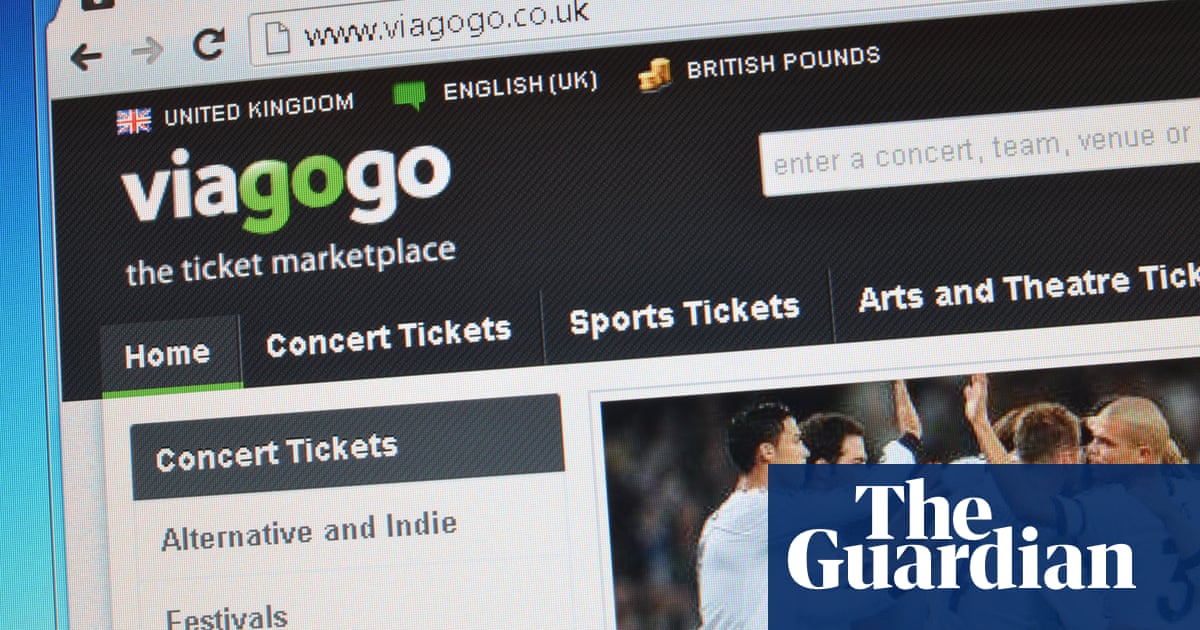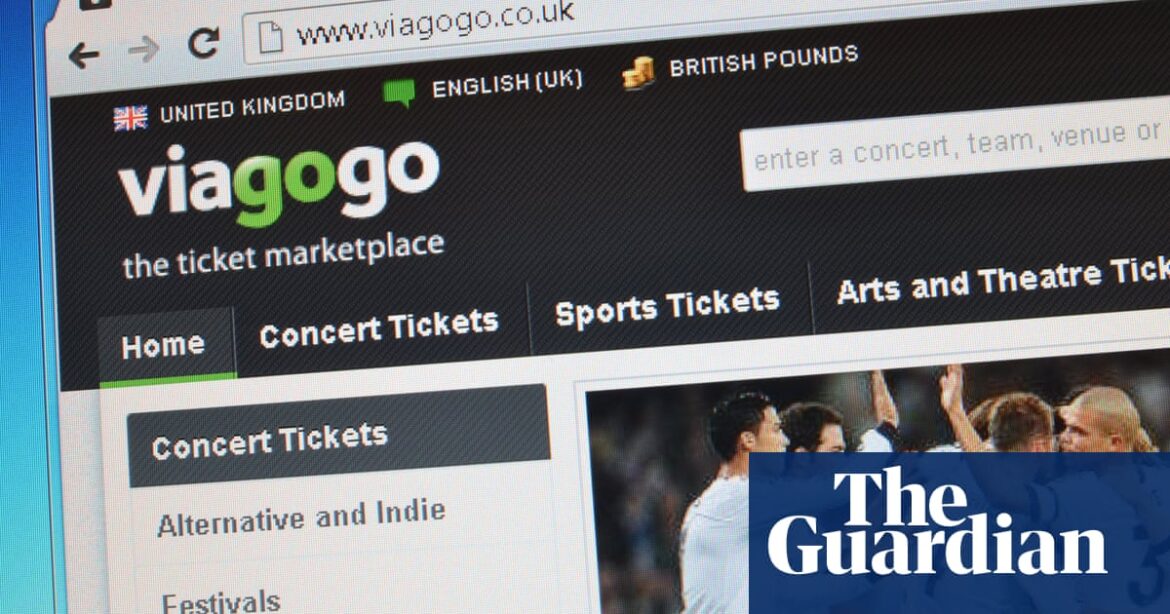
The ticket resale platform Viagogo has been accused of failing to prevent “misleading and potentially unlawful” practices on its platform, despite facing intense scrutiny as the government consults on new anti-touting laws.
Ministers are weighing up plans to cap the price at which tickets can be resold, after Labour pledged in its election manifesto to tackle ticket touts using platforms such as Viagogo and StubHub to charge fans huge mark-ups for in-demand shows.
The plans, which could include a cap of 10% above face value, pose a significant threat to resale platforms, which make a commission on every ticket sold.
Despite the risk of a regulatory backlash, listings from the Viagogo website suggest that the company failed to prevent touts engaging in practices that campaign group FanFair Alliance said offer “damning evidence” to support new anti-touting laws.
One such tactic is “speculative selling”, when a tout advertises tickets it does not yet have, hoping to bank the cash from a sale upfront, then source a ticket later to fulfil the order.
Two touts, Peter Hunter and David Smith, were jailed in 2020 after being found guilty of four counts of fraud, including one related to speculative selling, following a 2016 investigation by the Observer.
Several listings on the Viagogo website suggest that speculative selling, which the company has said it does not allow, took place even as the government consultation was under way.
Tickets for a tour by the indie pop band Bastille appeared on the website on 25 March, a day before they were due for release. Sources close to the band said they did not think it was possible for anyone to have genuine tickets at the time. The band’s lead singer, Dan Smith, had lashed out that same day at “galling” ticket touts.
Viagogo blamed “human error”, saying it had noticed the early listings on the day and removed them before any transactions took place.
The Guardian also analysed listings for the rapper Central Cee and girl group Sugababes. In both cases Viagogo listed tickets with rows and seat numbers that were simultaneously showing on Ticketmaster as unsold.
For Sugabababes, one ticket trader – defined as someone who sells more than 100 tickets a year – was listing six tickets in 33 different rows, a total of 198 tickets. All appeared to be as yet unsold on Ticketmaster, suggesting that they may have been listed speculatively.
Viagogo said it had investigated and removed listings after the Guardian’s enquiry, adding that ticket traders who broke its rules could be fined and banned.
The website also posted tickets with incorrect information, potentially in breach of consumer laws.
This included incorrect information about seat location for a show by the figure skaters Torvill and Dean and wrong information on the face value for tickets to the Oasis reunion tour. One listing claimed that fans would have paid more than $1,800 (£1,375) if they had bought through official channels.
Viagogo said it had removed the Torvill and Dean listings. It said incorrect information about the face value of Oasis tickets was the responsibility of ticket sellers, adding that “ambiguity” might have been caused by the band’s use of “dynamic pricing”, where the price of tickets changed in response to demand.
Annabella Coldrick, chief executive of the Music Managers Forum, said: “This is really damning evidence, and I’m sure the government will share our outrage at how these offshore resale platforms continue to exploit and rip off British gig-goers.”
after newsletter promotion
A spokesperson for FanFair Alliance, a music industry anti-touting campaign group, said it believed that Viagogo had not done enough to prevent “misleading and potentially unlawful practices”.
They said the timing, during the government consultation on ticket touting, “really takes the biscuit”.
Calls for a cap on ticket resale have also won the backing of the trade body UK Music, the music industry group LIVE and the MP and veteran anti-touting campaigner Sharon Hodgson.
“These new findings are outrageous but completely unsurprising,” said Hodgson. “Fans, artists, athletes and venues deserve better. I will continue to work with FanFair Alliance and the government to end this blatant black market once and for all.”
A spokesperson for Viagogo said: “Viagogo takes its obligations under the law seriously and is fully compliant in the UK.”
They said the company complied with a court order obtained by the consumer watchdog, the Competition and Markets Authority, in 2019, forcing it to comply with consumer law.
“As part of the CMA order, it is the seller’s responsibility to include the correct seat and face value information. If incorrect information is notified to us we will investigate to ensure the correct information we are aware of is displayed to our buyers.”
As well as ticket touting, the government consultation will look at the controversial “dynamic pricing” used by authorised ticket companies such as Ticketmaster.
Unlike touting, the use of dynamic pricing must be approved by artists and their managers.
Source: theguardian.com



